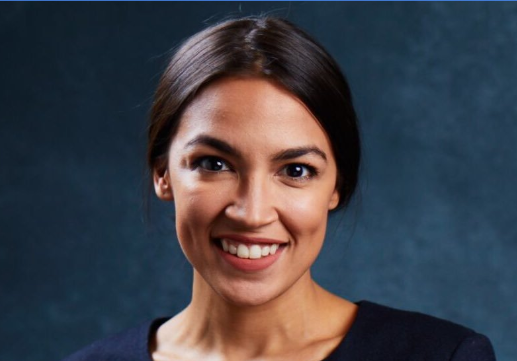Alexandria Ocasio-Cortez, Mikie Sherrill and Consensus Progressivism: The Future of the Democratic Party

Here’s an observation about two first-term members of Congress that will make them and their supporters cringe. I’ll take my chances. Alexandria Ocasio-Cortez, the fiery progressive who represents a staunchly Democratic district covering parts of the Bronx and Queens, and Mikie Sherrill, the pragmatic center-left Democrat who flipped a traditionally Republican district in suburban Morris County, New Jersey, are becoming more alike than either would care to admit. And unbeknownst to one another, they are forging a consensus progressivism that is the future of the Democratic Party.
Alexandria Ocasio-Cortez is not the same member of Congress she was during her first year in office, 2019. After her defeat of Congressman Joe Crowley, the center-left Queens Democratic Party leader and Capitol Hill titan, AOC vowed to defeat incumbent center-left Democrats who were not progressive enough in Bernie Sanders universe. She also came out of the gate hesitant to support Nancy Pelosi as Speaker – a reticence AOC and Pelosi’s other Democratic doubters now regret. Pelosi’s brilliance this term at Speaker, emulating that which she demonstrated as Speaker under President Obama, left them no choice.
AOC had a knack for making Democratic veterans who have given our lives to progressive causes – winning repeatedly against the longest odds – feel like has-been crap. Here’s a secret about politics: You cannot form coalitions to win landmark advancements if you make your natural allies feel like has-been crap, even if not your intention. On an ideological scale of 1 to 10 with 10 being the most progressive, don’t make us feel like defenders of the status quo because we’re a 9.5 and you’re a 20.
Notwithstanding all the reasons I hadn’t jumped on the AOC bandwagon, including her mixed signals on the security of Israel, a cause close to my heart, I still found reasons to respect her. She is one of the most brilliant and well-prepared questioners and policy experts in Congress today – in either house, regardless of seniority. The talent she has at her age, only 30, is astonishing, and it was evident from her first Congressional hearing. In fact, she ranks among the best questioners in the U.S. House along with other three Democratic women: First termers Katie Porter of California and Ayanna Pressley of Massachusetts, also in their first term, and New Jersey’s own Bonnie Watson Coleman.
For those who saw AOC as a hotdogger who hurled misfires willy-nilly to get attention, you had it wrong. She has put in the work from day one.
This year, AOC’s maturation has been catching up to her substance. She is a shockingly fast study with the potential to be an extraordinary legislator. Make no mistake: She still champions Medicaid for All and the Green New Deal, admirable aspirations both. But she now understands that progressive Democrats who favor the expansion of health care and environmental protection, even if not to her extent, are not the enemies far-right wing Republicans are. Without compromising her ideology or her passion, she has added practicality to the mix.
AOC has also dropped targeting progressive Democrats who don’t pass her litmus test. There's no longer buzz about her supporting primary challenges to superstars like Brooklyn Congressman Hakeem Jeffries, one of the House impeachment managers. She has sent signals that it’s time for the Democratic Party to unite in support of presumptive nominee Joe Biden.
Enter another first-term Democratic Congresswoman, Mikie Sherrill. I’m not familiar with her working relationship with AOC, if any, but I can imagine the Congresswoman from New Jersey thinking, “Oh great, a column comparing me to Alexandria. Just what I need in my district – not.”
Obviously the two are miles apart from being conjoined twins. Sherrill represents a district that had not sent a Democrat to Congress in 34 years. One could imagine her as a good fit for a swing Democratic district in her native Virginia, certainly outside the liberal Washington, D.C. suburb of Alexandria where she born.
Indeed, Sherrill’s first Congressional vote was in opposition to Nancy Pelosi as Speaker, for whom AOC wound up voting yes. This year, Sherrill endorsed Mike Bloomberg after Cory Booker dropped out of the Presidential race, before she endorsed Joe Biden in the current two-person matchup with Bernie Sanders.
Sherrill personifies a squad of House members other than the well-known Squad to which AOC belongs. Sherrill is among the first-term Democratic Congresswomen in the U.S. House, along with Michigan’s Elissa Slotkin and Virginia’s Elaine Luria and Abigail Spanberger, who served in the military or the CIA, and flipped their red districts to blue through modestly but unmistakably left of center politics.

At the same time, Sherrill does not run away from being a Democrat even in her Republican district. She was one of seven self-styled national-security Democrats in the House, all from swing districts, who wrote Speaker Pelosi last September to indicate they would support impeachment based on President Trump’s solicitation of election help from Ukraine. Sherrill acted two months before other center-left New Jersey Democrats from swing districts, Josh Gottheimer and Tom Malinowski, announced they would vote for impeachment. Whereas Sherrill seems to apply equal emphasis to the two words in “bipartisan Democrat,” Gottheimer, in particular, seems to stress bipartisan over Democrat.
No one could fairly assail Mike Sherrill or AOC, with her increased nuance, as being anything but Democrats. Neither is a Bernie Sanders. Sherrill has a clearly Democratic worldview, combining her support for building on Obamacare with her genuine leadership on gun control and reproductive choice. As for AOC, Politico recently reported that she rejected entreaties to endorse a nationalized health care system like Britain’s that goes beyond Medicare for All.
The movement by both talented women, one from the left and the other from the center-left, makes it clear the Democratic Party’s national future rests with candidates who can bridge the divide between left and center-left. That’s who Barack Obama was. That was also Cory Booker, who through no fault of his own, could not break through the impossible lottery of 27 primary candidates in which the two finalists became those with the highest and longest-held name recognition.
Don’t get me wrong: Having supported Cory throughout his candidacy, and then Pete Buttigieg, I now support Joe Biden proudly as the spot-on President for these anxious, polarized times. Just as Hillary Clinton moved further from the center-left toward the left to unite the party for November 2016, so, too, will Joe Biden now.
Don’t label the result triangulation – it’s simply not. Center-left is triangulation. The place between left and center-left is consensus progressivism. That’s where Democrats like Alexandria Ocasio-Cortez and Mikie Sherrill are headed. That’s where the Democratic Party is headed. And that’s where America is headed.
From the standpoint of progressive New Deal Democrats like me, that’s a wonderful place to be.






I agree with your comment on Israel. It is important that Palestinians are not oppressed from within (their own communities) and from without (from other entities in the Middle East including but not only Israel) I think the progressives are lumping Israel and its supporters into the "enemy/right-wing/non-progressive" category. For many reasons including past history, current anti-semitism, and inclusive progressive politics, this has got to stop. Progressives need to rethink their approach and not lump all Israel supporters into one undifferentiated mass. Personally I'm uneasy that many progressives/democratic socialists including Bernie (who I support for President) are not willing to work with Israel supporters including AIPAC about which, I must admit, I do not know enough.